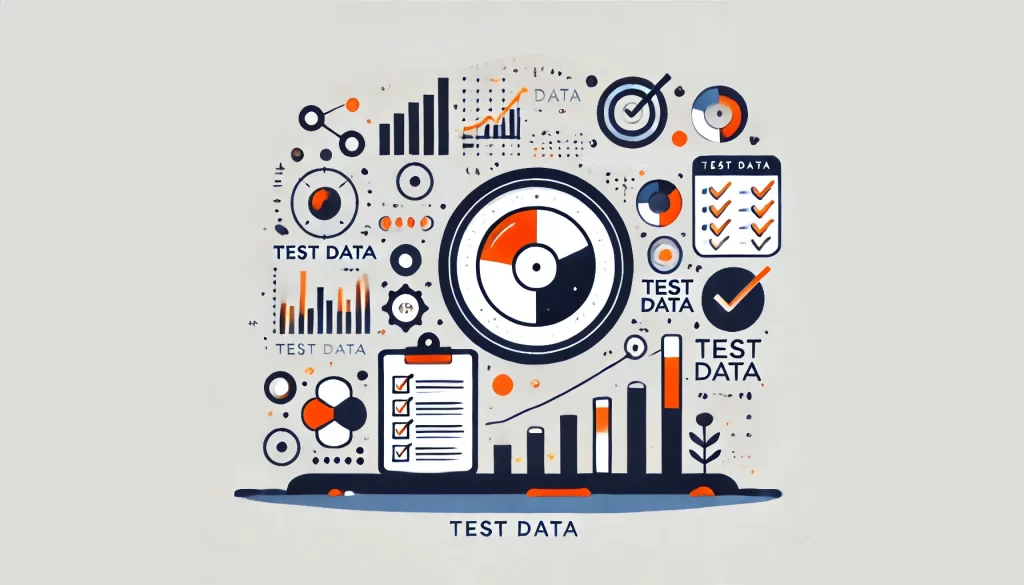
Test Data: A Complete Overview

Software development relies heavily on testing to ensure quality and functioning. At the heart of this process lies test data. This article will explore the concept of test data, discuss its importance, and explain how software uses it. We’ll delve into various aspects of data, from its definition to its creation and management.
We invite you to contact us online to schedule a free demo session. Experience firsthand all of DataSunrise’s powerful test data capabilities, including our advanced data masking and synthetic data generation features.
Defining Test Data
Test data refers to the information used to verify the functionality of a software application. The input that testers use to run their test cases and evaluate the output. This data plays a crucial role in software testing as it helps identify issues in the system under test.
The Importance of Test Data in Software Development
Quality is essential for effective software testing. It allows testers to simulate real-world scenarios and uncover potential issues before the software reaches end-users. Good data is important for making sure the software works correctly in different situations and with different inputs.
Types of Test Data
Several types of test data that testers might use include:
- Valid data: This includes typical, expected inputs that the system should handle without issues.
- Invalid data: This consists of incorrect or unexpected inputs to test how the system handles errors.
- Boundary data: This type of data tests the limits of acceptable inputs.
- Performance data: Large volumes of data used to test system performance under stress.
Creating Test Data
Data creation is a critical part of the process. Testers can generate data in several ways:
- Manual creation: Testers manually input data based on their understanding of the system requirements.
- Automated generation: Using tools to create large volumes of data quickly.
- Production data copying: Using real data from production systems, often masked for privacy.
- Synthetic data generation: Creating artificial data that mimics real-world data patterns.
Every method has its pros and cons, and the decision usually depends on the testing needs and resources available.
Test Data Management
Effective test data management is crucial for successful software testing. It involves creating, maintaining, and providing the right data to testers at the right time. Good data management practices include:
- Data versioning: Keeping track of different versions of data.
- Data refresh: Regularly updating data to reflect current production data.
- Data security: Ensuring sensitive information is protected, especially when using production data.
- Data subset creation: Creating smaller, manageable subsets of large data volumes for specific tests.
Challenges in Test Data Management
Managing such data comes with several challenges:
- Data volume: Handling large amounts of data can be time-consuming and resource-intensive.
- Data privacy: Ensuring compliance with data protection regulations when using real data.
- Data consistency: Maintaining consistent data across different testing environments.
- Data relevance: Ensuring data remains relevant as the system under test evolves.
Best Practices
To overcome these challenges, consider the following best practices:
- Automate the data generation and management where possible.
- Use data masking techniques to protect sensitive information.
- Implement a robust test data management system.
- Regularly review and update your test data to ensure its relevance.
The Role of Test Data in Different Types
Test data plays a crucial role in various types of software testing:
- Unit: Developers use small sets of data to verify individual components.
- Integration: Testers use more comprehensive data sets to check how different parts of the system work together.
- System: This requires large, varied data sets to test the entire system functioning.
- Acceptance: Testers use real-world-like data to ensure the system meets user requirements.
Example of Test Data in Action
Let’s consider an e-commerce website as an example. To test the checkout process, testers might create the following data:
- Valid customer information: Names, addresses, and valid credit card numbers.
- Invalid data: Incorrect card numbers or expired cards for error handling.
- Boundary cases: Orders at the minimum and maximum allowed values.
- Performance data: Large numbers of simultaneous orders to check system capacity.
Testers can use various types of data to ensure that the checkout process functions effectively in various scenarios. They can also check if it handles errors properly and can manage high volumes of traffic.
The Future Prospects
As software systems get more complicated and data grows, it becomes more important to manage data effectively. In the future, we will have improved tools for creating and managing such data. These tools may include AI systems that can generate realistic data sets automatically.
Privacy rules are becoming stricter. This will lead to a greater emphasis on generating synthetic data. Synthetic data appears real but does not compromise users’ privacy.
Conclusion
Test data is a fundamental component of the software testing process. It provides the foundation for verifying software functionality, performance, and reliability.
Software development teams can enhance their processes and software quality by understanding the data. They should know how to create and manage it effectively. Additionally, they should learn how to use it in various scenarios.
As we’ve seen, test data is not just about having some information to input into a system. Having the right data, in the right format, at the right time is crucial to thoroughly test all aspects of a software application. Good data is important for finding bugs, checking software functionality, and ensuring user satisfaction. This applies to tests of all sizes, from small to large.
Managing test data can be challenging because of handling large volumes and ensuring data privacy and relevance. This emphasizes the importance of having strong data management strategies. By implementing best practices and leveraging appropriate tools, organizations can overcome these challenges and reap the benefits of effective data management.
In the future, test data management will change as software development and data technologies advance. As systems become more complex and data-intensive, the ability to generate, manage, and utilize effective data will become an increasingly valuable skill in the software development industry.
In summary, this data is important for the quality and success of software products. By focusing on it, software teams can improve testing, decrease bugs, and provide better software to users.
